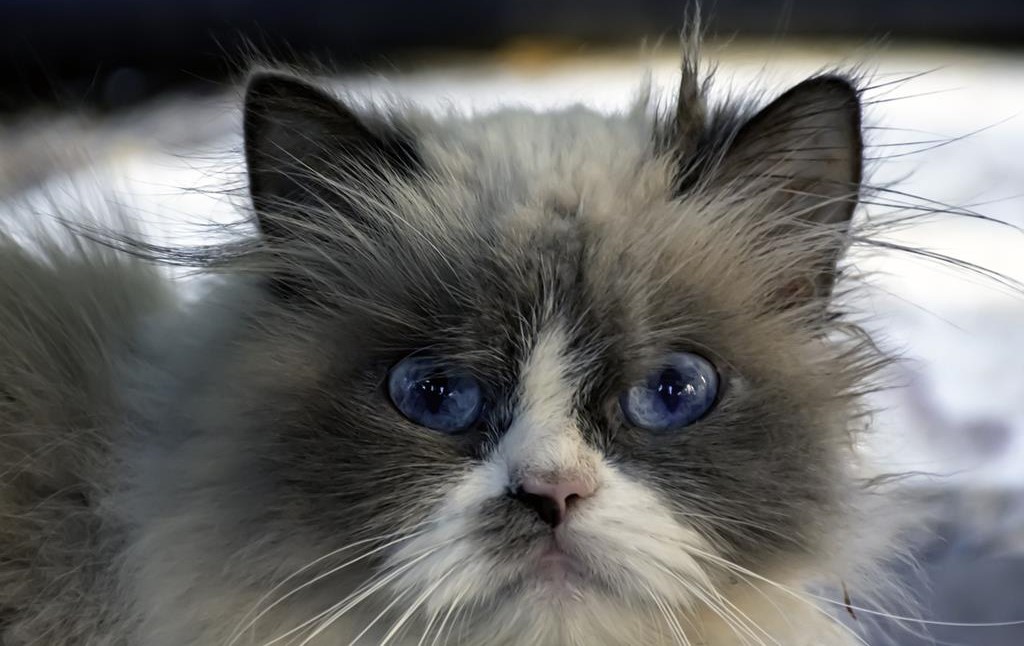Ragdoll cats are known for their gentle nature and affectionate behavior, making them wonderful companions. However, if you find your Ragdoll meowing excessively at night, you’re not alone. Nighttime meowing is a common behavior in cats, and understanding the reasons behind it can help you create a more peaceful sleep environment for both you and your feline friend. In this article, we’ll explore some possible explanations for why your Ragdoll cat meows so much at night and provide strategies to address this behavior.
Reasons Why Ragdoll Cat Meows So Much at Night
1. Seeking Attention:
Ragdolls are social cats that thrive on human interaction. If your cat is meowing persistently at night, it might be seeking your attention. Cats are most active during the dawn and dusk, and if they sense you’re awake, they may try to engage you in play or interaction.
2. Loneliness or Anxiety:
Ragdolls can develop separation anxiety if they’re used to your presence during the day and suddenly find themselves alone at night. Meowing can be their way of expressing distress and seeking reassurance. Consider providing comfort through a warm blanket, a piece of your clothing, or even a companion pet.
3. Hunger or Thirst:
If your Ragdoll’s feeding schedule is closer to morning or evening, they might feel hungry or thirsty at night. Cats have a keen sense of time, and if they’re used to being fed at a specific hour, they could remind you of their needs with persistent meowing.
4. Age-Related Changes:
As cats age, their behavior can change. Senior Ragdolls might develop cognitive dysfunction syndrome (similar to dementia in humans), leading to confusion, restlessness, and altered sleep patterns. Nighttime meowing can be a symptom of this condition.
5. Playfulness:
Ragdolls, like other cats, experience bursts of energy and playfulness, often referred to as the “zoomies.” These episodes can occur during the night, especially if your cat is kept indoors. The meowing might be an invitation for play or an outlet for pent-up energy.

Addressing Nighttime Meowing:
- Establish a Routine: Stick to a consistent feeding and play schedule. Providing a satisfying meal and play session before bedtime can help reduce hunger-related meowing.
- Interactive Playtime: Engage your Ragdoll in interactive play sessions during the evening to tire them out before sleep. This can help channel their energy in a positive way.
- Create a Comfy Environment: Set up a cozy sleeping spot with a familiar scent, soft bedding, and a warm blanket. This can provide comfort and security, reducing anxiety-related meowing.
- Ignore Meowing for Attention: If your cat is meowing for attention, avoid reinforcing the behavior by responding immediately. Wait until they quiet down to offer interaction.
- Consult a Veterinarian: If your Ragdoll’s nighttime meowing is sudden, excessive, or accompanied by other behavioral changes, it’s wise to consult a veterinarian. Medical issues or pain could be contributing factors.
FAQs on Why Ragdoll Cat Meows So Much at Night
1. Why does my Ragdoll cat meow so much at night?
Nighttime meowing in Ragdoll cats can stem from various reasons such as seeking attention, loneliness, hunger, playfulness, or age-related changes. Identifying the underlying cause is crucial for addressing the behavior effectively.
2. Is it normal for Ragdoll cats to be more active at night?
Yes, Ragdoll cats, like most cats, are crepuscular, meaning they’re naturally more active during dawn and dusk. Their heightened activity during these times could contribute to increased meowing, especially if they’re seeking interaction or play.
3. Can hunger cause my Ragdoll cat to meow at night?
Yes, hunger can be a significant factor. If your Ragdoll’s feeding schedule is closer to morning or evening, they might meow to express their hunger. Maintaining a consistent feeding routine and providing a satisfying meal before bedtime can help reduce this behavior.
4. How can I address my Ragdoll cat’s excessive meowing at night?
Addressing nighttime meowing involves identifying the cause. Engage in interactive play sessions to tire them out, establish a comfortable sleeping spot, maintain a consistent routine, and consider consulting a veterinarian if the behavior is sudden or accompanied by other changes.
5. Is my Ragdoll cat meowing due to loneliness?
Yes, Ragdolls are social cats that can experience separation anxiety if left alone at night. Meowing could be their way of seeking reassurance and companionship. Introducing another pet or leaving a piece of your clothing near them might offer comfort.
6. Why do older Ragdoll cats meow more at night?
Senior Ragdoll cats might experience cognitive dysfunction syndrome as they age, leading to changes in behavior, including altered sleep patterns and nighttime restlessness. Increased meowing could be a symptom of this condition.
7. Can playtime help reduce my Ragdoll cat’s nighttime meowing?
Absolutely. Engaging your Ragdoll cat in interactive play sessions during the evening can help burn excess energy and stimulate their natural instincts. This can lead to a more content and less restless night, potentially reducing nighttime meowing.
Conclusion
Understanding the reasons behind your Ragdoll cat’s nighttime meowing is essential for effectively addressing the behavior. Whether it’s a call for attention, playfulness, anxiety, or other factors, you can take steps to create a more harmonious sleep routine for both you and your feline companion. By providing comfort, engaging play, and establishing consistent routines, you can minimize nighttime meowing and ensure restful nights for everyone in the household.



